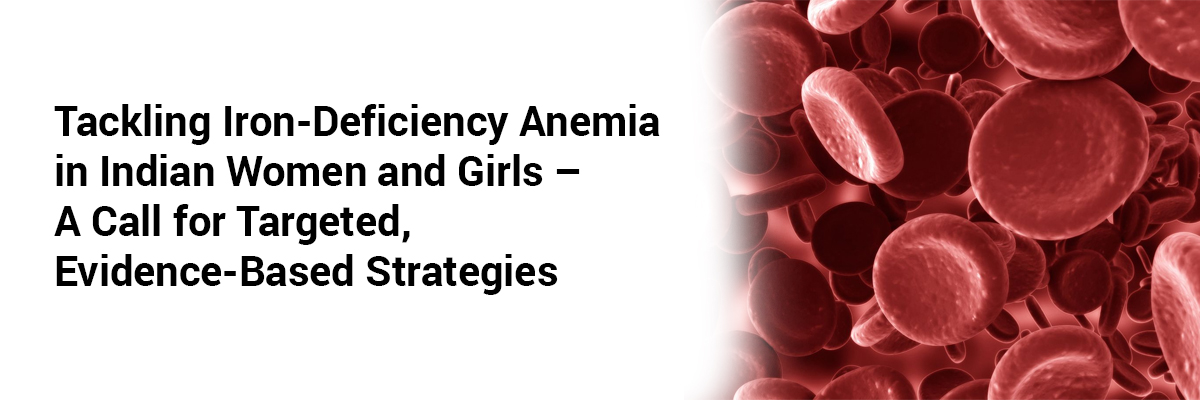
Tackling Iron-Deficiency Anemia in Indian Women and Girls – A Call for Targeted, Evidence-Based Strategies
Iron-deficiency anemia (IDA) remains a major public health issue in India, affecting over 40% of adolescent girls and women of reproductive age, as per WHO data. Despite nationwide programmes like the National Iron Plus Initiative (NIPI), the prevalence of anemia has drastically risen in recent years. A growing body of evidence suggests that innovative, multi-dimensional interventions are more effective than conventional approaches. For instance, a study by Mehta et al. reported that daily consumption of iron-supplement bars significantly increased hemoglobin and hematocrit levels in non-pregnant anemic women within 90 days, with 70.8% reaching normal Hb levels without side effects. Another study by Sontakke et al. demonstrated that mobile phone call reminders significantly improved adherence to iron therapy and boosted haemoglobin levels in pregnant women. Furthermore, intermittent IFA regimens were shown by Gupta et al. to be as effective as daily supplementation in improving Hb and ferritin levels, but with better tolerance.
Future Recommendations and Policy Direction:
To address this growing challenge, a comprehensive and adaptive policy framework is critical. First, revising NIPI guidelines to reflect global evidence, particularly around dose, frequency, and delivery mechanisms, could enhance programme impact. Promoting intermittent IFA regimens may improve adherence while reducing side effects. Second, the implementation of nationwide anaemia surveillance using venous blood samples is crucial to ensure accuracy in diagnosis and monitoring. Third, interpersonal counselling and community-based engagement, especially through ASHA workers and school-based platforms, must be prioritized to address behavioural barriers. Lastly, integrated interventions, including regular deworming, malaria control, and diversified dietary strategies, should form the cornerstone of long-term anaemia prevention. These evidence-backed approaches underscore the need for coordinated action among healthcare providers, educators, policymakers, and communities to break the intergenerational cycle of anaemia in India.
Source: Saju M. Enhancing Health: Effective Interventions Addressing Iron-Deficiency Anaemia among Adolescent Girls and Reproductive-Aged Women in India: A Comprehensive Systematic review. Journal of Integrated Health [Internet]. 2025 Feb 5;4(1):332–50. Available from: https://doi.org/10.51219/jih/muthulekshmi-saju/58














Please login to comment on this article